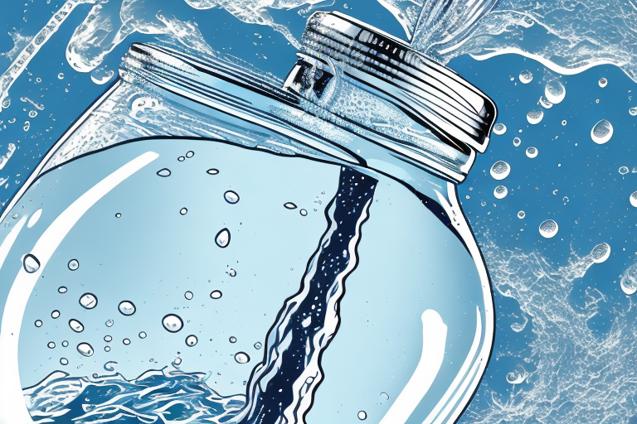
Staying hydrated is crucial for maintaining good health and safety while sailing, and this article provides practical tips to help you and your family stay hydrated while living on a boat.
Staying Hydrated and Avoiding Dehydration on a Boat
As you embark on your sailing adventure with your family, it’s essential to prioritize health and wellness while at sea. One crucial aspect of maintaining good health on a boat is staying hydrated and avoiding dehydration. In this article, we will discuss the importance of hydration, the risks of dehydration, and practical tips for staying hydrated while living on a boat.
Table of Contents
- Why is Hydration Important?
- Risks of Dehydration
- Signs of Dehydration
- How Much Water Should You Drink?
- Tips for Staying Hydrated on a Boat
- Dealing with Dehydration
- Conclusion
Why is Hydration Important?
Water is essential for our bodies to function properly. It helps regulate body temperature, lubricate joints, transport nutrients, and remove waste. Staying hydrated is especially important when living on a boat, as the combination of sun exposure, physical activity, and salty air can quickly lead to dehydration.
Proper hydration is also crucial for maintaining energy levels and mental clarity, which are essential for safe and enjoyable sailing. Inadequate hydration can lead to fatigue, dizziness, and impaired decision-making, which can be dangerous when navigating the open sea.
Risks of Dehydration
Dehydration occurs when your body loses more fluids than it takes in, leading to an imbalance in your body’s electrolytes. This can have serious consequences for your health and well-being, especially when living on a boat. Some risks associated with dehydration include:
-
Heat exhaustion and heatstroke: Prolonged exposure to the sun and high temperatures can cause your body to lose fluids rapidly, leading to heat exhaustion or heatstroke. These conditions can be life-threatening if not treated promptly.
-
Kidney problems: Dehydration can lead to kidney stones and urinary tract infections, which can be painful and potentially dangerous if left untreated.
-
Electrolyte imbalances: When your body loses fluids, it also loses essential electrolytes like sodium, potassium, and magnesium. These imbalances can cause muscle cramps, dizziness, and irregular heartbeat.
-
Decreased cognitive function: Dehydration can impair your ability to think clearly, make decisions, and react quickly, which can be particularly dangerous when sailing.
Signs of Dehydration
It’s essential to recognize the signs of dehydration so you can take action to rehydrate your body. Some common symptoms of dehydration include:
- Thirst
- Dry mouth and throat
- Dark yellow urine
- Fatigue
- Dizziness or lightheadedness
- Headache
- Muscle cramps
- Rapid heartbeat
If you or a family member experiences any of these symptoms, it’s crucial to increase your water intake and monitor your condition closely.
How Much Water Should You Drink?
The amount of water you need to drink each day depends on several factors, including your age, weight, activity level, and the climate you’re sailing in. As a general guideline, the National Academies of Sciences, Engineering, and Medicine recommends a daily water intake of:
- 3.7 liters (125 ounces) for men
- 2.7 liters (91 ounces) for women
These recommendations include all fluids consumed, not just water. However, it’s essential to remember that these are general guidelines, and individual needs may vary. When sailing, you may need to increase your water intake to account for increased sun exposure, physical activity, and salty air.
Tips for Staying Hydrated on a Boat
Here are some practical tips to help you and your family stay hydrated while living on a boat:
-
Carry a reusable water bottle: Having a water bottle with you at all times makes it easy to sip water throughout the day. Choose a bottle with a built-in filter if you’re concerned about water quality.
-
Set hydration reminders: Use a smartphone app or set alarms to remind you to drink water regularly throughout the day.
-
Monitor your urine color: A well-hydrated person should have pale yellow urine. If your urine is dark yellow or amber, it’s a sign that you need to drink more water.
-
Drink before you’re thirsty: Thirst is not always a reliable indicator of your body’s hydration needs. Make a habit of drinking water regularly, even if you don’t feel thirsty.
-
Eat water-rich foods: Incorporate fruits and vegetables with high water content into your meals, such as watermelon, cucumber, oranges, and strawberries.
-
Limit caffeine and alcohol: Both caffeine and alcohol can have a diuretic effect, causing your body to lose fluids. Limit your intake of these beverages and opt for water or herbal tea instead.
-
Replenish electrolytes: If you’re sweating heavily or experiencing symptoms of dehydration, consider drinking an electrolyte-rich beverage like coconut water or a sports drink to help restore your body’s electrolyte balance.
Dealing with Dehydration
If you or a family member becomes dehydrated, it’s essential to take action immediately to rehydrate the body. Here are some steps to follow:
-
Increase water intake: Drink water slowly and steadily to help your body absorb the fluids. Avoid chugging large amounts of water at once, as this can lead to overhydration.
-
Rest in a cool, shaded area: If you’re experiencing symptoms of heat exhaustion or heatstroke, move to a cooler, shaded area and rest. Remove any excess clothing and apply cool, wet cloths to your skin to help lower your body temperature.
-
Replenish electrolytes: Drink an electrolyte-rich beverage like coconut water or a sports drink to help restore your body’s electrolyte balance.
-
Seek medical attention if necessary: If symptoms of dehydration persist or worsen, seek medical attention immediately. Severe dehydration can be life-threatening and requires prompt treatment.
Conclusion
Staying hydrated is essential for maintaining good health and enjoying a safe and enjoyable sailing adventure with your family. By recognizing the signs of dehydration, understanding your body’s hydration needs, and following practical tips for staying hydrated, you can ensure that you and your family remain healthy and energized while living on a boat.